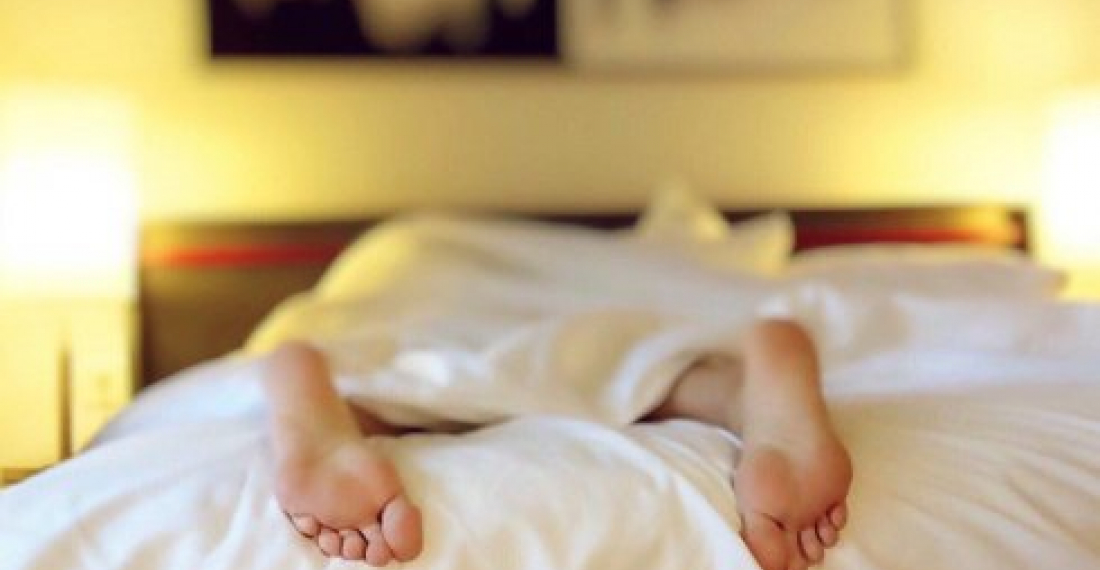- Armenia-Azerbaijan Strategic Expert Platform: Members emphasise the importance of the present moment for the South Caucasus and call for the momentum to be used for the long-term peace and prosperity of the region
- Thursday Interview: Dr. Anar Valiyev
- Food insecurity in Somalia has nearly doubled in the past year
- Türkiye evaluating potential measures in case of a US-Iran conflict
- European Parliament reaffirms support for Ukraine and EU Path
- EU moves ahead with Ukraine loan preparations despite Hungarian block
Sleeping through the pandemic

What can you do when drifting off becomes a problem? William Murray looks at expert advice in this piece for commonspace.eu
It is commonly understood that people with chronic stress have a much harder time getting good quality sleep than others [1]. In this current time of insecurity, such issues are likely to affect a higher proportion of our populations than usual. Whilst in times of stress, it may feel like one cannot sleep for all of the anxieties plaguing the mind, sleep is likely to be exactly what one's body needs. The importance of sleep - and, importantly, good quality sleep - range from our ability to control our moods, emotions, and level of irritability [2]; to how well our immune system functions [3]. As we all face a challenge unlike any before, both the former and latter consequences of sleep are of utmost importance - with so many of us confined indoors with other people, and needing our bodies fighting fit to keep the virus at bay, a good night's sleep is imperative.
There are a number of things that people can be doing to help themselves to sleep better, and thus, leave them in a better position to handle the stresses of the ongoing crisis. Here are three points that experts believe that we should concentrate on:
1) Keep to a routine as much as possible.
In an interview with Greater Good Magazine, Shelby Harris, the former director of the Behavioural Sleep Medicine Program at Montefiore Medical Center and associate professor at the Albert Einstein College of Medicine, stated that one of the main things getting people off track with sleep is a lack of a normal routine. Not only is this down to the unfamiliar cessation of work and social patterns, but also simply getting out of bed and not leaving the house [4]. As much as it is tempting to stay up late or spend a few more hours than usual in bed, your body sleeps best when it can predict resting time. Try to create a familiar ritual at bedtime, that will allow your body to wind down naturally and prepare itself for sleep.
2) Put away your screens at night.
Obligated to stay indoors, we are all consuming a lot more movies and TV shows to keep ourselves occupied. However, the screens of electronic devices are notorious for messing with our body clocks. Our sleeping patterns are based heavily on Circadian Rhythms, which are primarily dependent on light to know when to be alert or rest. Electronic light coming from screens can tell our bodies to wake up when it is almost bedtime, causing havoc for our sleep patterns [5]. In addition, watching the news before bed can make us stressed about what is going on, and thus, make it more difficult to drop off.
3) If possible, try to get some daylight exposure.
Following on from the last point, light is very important for your body's internal clock. Although some of us will be living in complete quarantine, Kevin Morgan, a psychologist from Loughborough University, has urged people to try to make the most of any time that they are able to be outside (or by a window) in order to improve their mood and quality of sleep. "Even if it's sunny, don't take sunglasses, get the sun into your eyes," he adds, "That will increase your sleep quality and your mood" [6].
What do you do to make sure you get a good night's sleep? Let us know @commonspaceEU
Source: William Murray, Project Officer and Coordinator at LINKS Europe, for commonspace.eu
Features Sources:
[1] L.M. Davidson, R. Fleming, A. Baum - 'Chronic Stress, Catecholamines, and Sleep Disturbance at Three Mile Island': https://www.tandfonline.com/doi/abs/10.1080/0097840X.1987.9936798
[2] Harvard Medical School - 'Sleep and Mood': http://healthysleep.med.harvard.edu/need-sleep/whats-in-it-for-you/mood
[3] L. Besedovsky, T. Lange, J. Borncorresponding - 'Sleep and immune function': https://www.ncbi.nlm.nih.gov/pmc/articles/PMC3256323/
[4] Greater Good Magazine - 'How to Keep Coronavirus Worries from Disrupting Your Sleep': https://greatergood.berkeley.edu/article/item/how_to_keep_coronavirus_worries_from_disrupting_your_sleep
[5] Science News for Students - 'Evening screen time can sabotage sleep': https://www.sciencenewsforstudents.org/article/evening-screen-time-can-sabotage-sleep
[6] BBC News - 'Coronavirus: How to get to sleep during lockdown': https://www.bbc.com/news/newsbeat-52311643








